Are you considering importing shoes from China? Are you aware of how to import shoes from China?Do you know why choosing to import shoes from China is a wise decision?
No worries, our guide is here to walk you through the journey of importing shoes from China, helping you delve deeper into the market of China shoes.
So, get ready to step into the realm of shoes in China, a market bustling with quality, variety, and endless opportunities for those looking to import shoes from China.
Table of Contents
ToggleWhy Should Choose To Import Shoes From China?
There are several compelling reasons why importing shoes from China can be a smart business move.
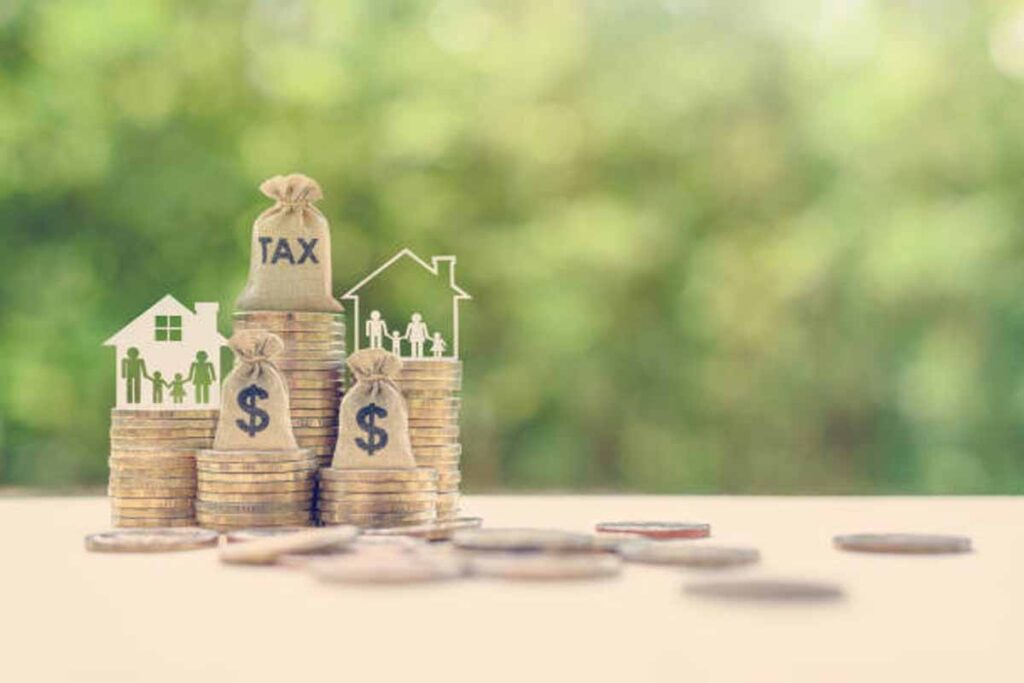
- Cost Efficiency: China has long been globally recognized for its ability to produce high-quality goods at competitive prices. By sourcing shoes directly from China, businesses can benefit from lower manufacturing costs, which in turn, can lead to increased profit margins.
- Wide Variety: The vast variety of shoes in China is impressive. Chinese shoe manufacturers offer an extensive range of styles and designs. Whether you are interested in athletic sneakers, fashionable heels, casual flats, or specialized footwear, the broad spectrum available caters to diverse consumer preferences.
- Production Capacity: Chinese manufacturers often have large-scale production capabilities, enabling them to handle bulk orders efficiently and meet high-demand requirements. This is crucial for maintaining a steady supply chain.
- Logistical Advantages: China has a well-developed logistics and shipping infrastructure, making the process of importing goods, including shoes imported to the USA and other regions, relatively straightforward and efficient.

According to statista, we can see that most of the men’s footwear market in the United States is leaning toward China
What Kind Of Shoes Can You Order From China?

When it comes to ordering shoes from China, the possibilities are virtually endless. Chinese manufacturers cater to various niches and produce a wide range of styles for different purposes. Here are some popular types of shoes you can order from China:
- Sports Shoes:

Chinese factories excel in producing athletic footwear that blends comfort, performance, and style seamlessly. Whether it’s running shoes, cross-trainers, or specialized sports footwear, the range available is extensive, making China a go-to destination for athletic shoes.
- Casual and Everyday Shoes:

From sneakers to loafers, sandals to slip-ons, casual and everyday shoes from China offer an abundance of choices suitable for daily wear. The comfort and style they provide make them a popular choice among many.
- Fashion Shoes:

Delve into the fashion-forward world with trendy heels, fashionable flats, and stylish boots. China’s shoe manufacturers stay abreast of global fashion trends, offering a vast selection of stylish shoes that appeal to the fashion-centric audience.
- Eco-Friendly Footwear:
With a growing emphasis on sustainability, eco-friendly shoes made in China from sustainable materials and ethical practices are gaining traction.
- Seasonal Footwear:
Chinese manufacturers cater to seasonal requirements with a range of footwear suitable for different weather conditions, be it warm boots for winter or airy sandals for summer.

- Specialty Shoes:
Targeting specific market segments such as orthopedic shoes or safety boots. Chinese factories can cater to these specialized needs, showcasing the versatility of shoe manufacturers in China.
- Children’s Shoes:

China is a leading producer of children’s shoes, with manufacturers specializing in creating comfortable, durable, and safe footwear for little feet. Their expertise in producing high-quality children’s shoes caters to the needs of the young ones impeccably.
If you are interested in imported children’s products, it is recommended to read the article about imported children’s products.
- Custom-Designed Footwear:
Have a unique design in mind? By working closely with reliable suppliers and communicating your specific requirements, you can order customized shoe designs that align with your brand and target audience.
Legal and Regulatory Considerations for Importing Shoes from China
When it comes to importing shoes from China, there are specific regulations that must be adhered to ensure compliance with both Chinese and destination country requirements.
Documentation Requirements

Accurate documentation is crucial for successfully clearing customs when importing shoes. Essential documents include commercial invoices, packing lists, bills of lading, certificates of origin, etc.
Quality Assurance and Compliance Certifications

Verify if the supplier holds relevant certifications related to product safety standards such as ISO or CE certifications. Compliance with these standards demonstrates a commitment to producing high-quality shoes.
Customs Classification
Shoes are subject to customs classification, which determines the rate of duty. Familiarize yourself with the Harmonized System (HS) codes for different types of footwear.
Trademark and Intellectual Property (IP) Rights:

Be cautious of infringing on trademark and intellectual property rights. Ensure that the designs you are importing do not violate any existing trademarks or IP rights.
Best Chinese City for Buying Shoes
1. Guangzhou (in Guangdong province):
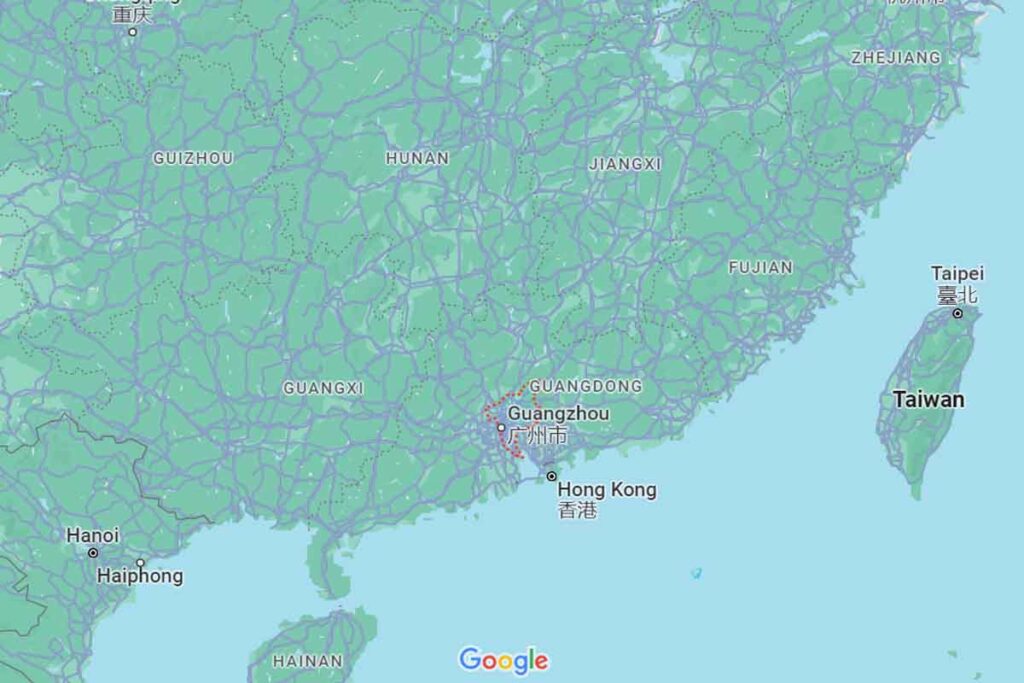
Guangzhou, located in southern China’s Guangdong province, is a prominent hub for footwear manufacturing and wholesale markets. The city hosts numerous wholesale markets like the Baiyun World Leather Trade Center, offering a vast array of styles at competitive prices. It’s an ideal place for finding a wide variety of shoes, including athletic footwear, fashion footwear, casual shoes, and more.
2. Wenzhou (in Zhejiang province):

Wenzhou is known for its leather and fashion footwear. The city has a long history of shoe manufacturing, and it’s particularly known for its high-quality leather shoes and fashionable footwear designs.
3. Putian (in Fujian province):

Putian is another city famous for its shoe manufacturing industry, especially for athletic and sports footwear. It has a rich history of producing high-quality sneakers and other types of athletic shoes.
4. Jinjiang (in Fujian province):

Jinjiang is also a significant center for shoe manufacturing in China. It’s home to many well-established shoe manufacturers and is known for producing a wide range of shoes, including sports shoes, casual shoes, and children’s shoes.
5. Chengdu (in Sichuan province):

This city has a growing reputation for stylish designs and is becoming a popular destination for buying women’s footwear.
Finding Trustworthy Suppliers for Shoe Imports from China
If you are looking for shoe suppliers from China, you might be overwhelmed by the number of options available. However, not all of them are reliable or trustworthy. How can you find the best ones for your business?
Here are some tips to help you find trustworthy suppliers for shoe imports from China:
Trade Shows and Exhibitions
- China Leather Fair 2024 (Wenzhou):
Date: August 23 – 25, 2024
Venue: Wenzhou International Convention and Exhibition Center

China (Wenzhou) International Leather Shoe Material & Shoe Machinery Fair specializes in machinery and leather products. It is held in the shoe capital of China, gathering all shoe-tech benefits from local networks along with nearby industrial resources. Being the converging point for all of industry’s stakeholders, this event has gained bounds and leeps in the recent years. It respects prevailing varieties of leather products and tend to advertise each one of them with same intensity.
https://www.chinaleatherfair.com/
- Canton SF Shoe Fair 2024 (Guangzhou):
Date: May 30 – June 1, 2024
Venue: Guangzhou, Poly World Trade Center Expo
Guangzhou Shoe Machinery Leather Industry Exhibition will feature products like shoe machines, shoes, footwear accessories, leather, synthetic leather, leather chemicals, leather, shoes and raw materials, hardware accessories; footwear machinery, luggage leather machinery, sewing equipment, printing equipment, Laser cutting equipment, and other related ancillary products.
http://www.slfchinafair.com/
- All China Leather Exhibition in 2024 (Shanghai):

Date: September 3 – 5, 2024
Venue: Shanghai New International Expo Centre (SNIEC)
Also known as Shanghai Leather Fair, this is the definitive and only international leather fair in China.
https://www.aclechina.com/
Online B2B Platforms
- Alibaba:

Alibaba is one of the largest online B2B marketplaces globally, connecting suppliers with buyers. On this platform, you can discover a wide array of shoe suppliers, view their offerings, and communicate with them directly.
Through the Alibaba shoes section, not only can you browse and purchase various imported shoes online, but you can also explore the extensive range of suppliers and products available.
- Made-in-China:
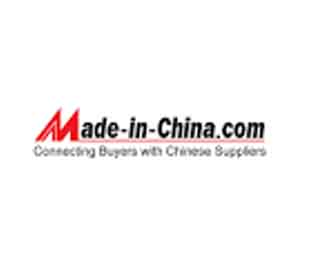
This platform connects international buyers with Chinese suppliers.
You can find a variety of shoe suppliers and products and also request quotations directly through the platform.
- HKTDC (Hong Kong Trade Development Council):
HKTDC provides a platform to connect with suppliers from Hong Kong and mainland China.
They also organize trade fairs, which provide an opportunity to meet suppliers in person.
- 1688.com:

1688.com is Alibaba Group’s domestic B2B purchasing and wholesale marketplace, in Chinese.
It’s a good platform for those who can navigate a Chinese-language platform and want to connect with local suppliers.
local wholesale market
- Wenzhou Shoe Market (Wenzhou, Zhejiang):
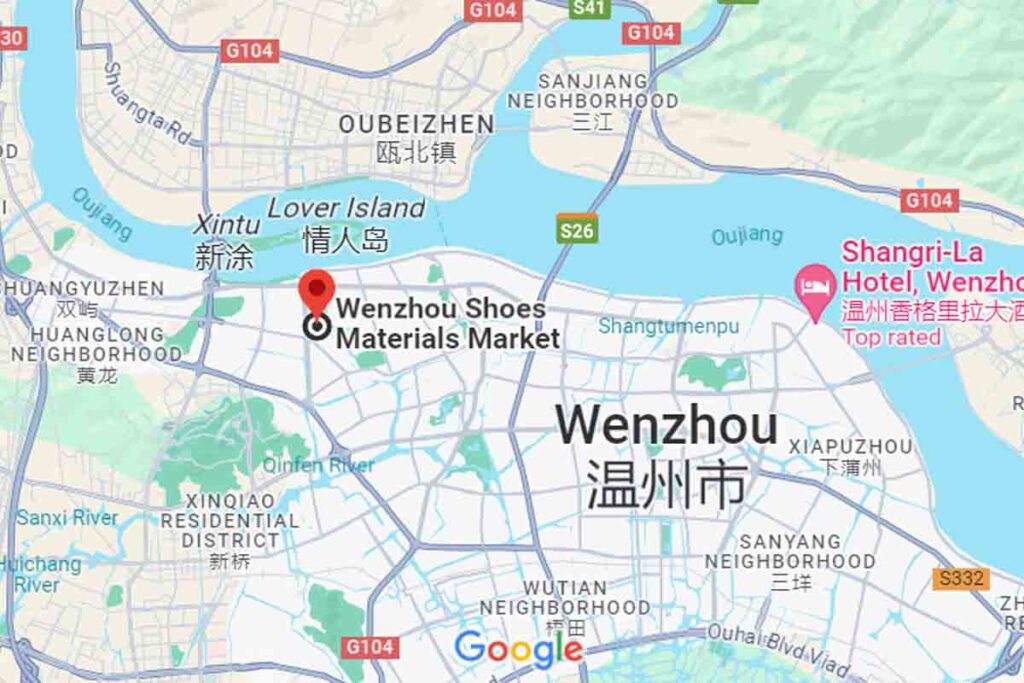
Wenzhou is known as the “shoe capital” of China.
There are many markets and factories dedicated to footwear manufacturing and wholesale.
- Yiwu Wholesale Market (Yiwu, Zhejiang):
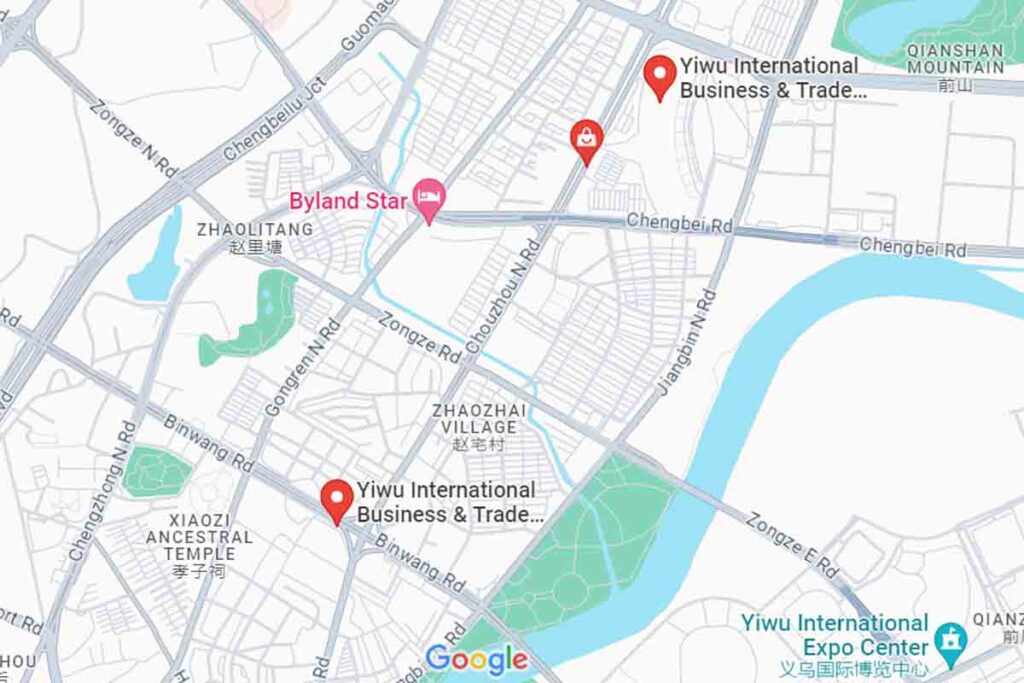
Yiwu Market is one of the largest small commodities markets in the world, and it has a dedicated section for footwear.
You can find a vast variety of shoes and footwear accessories at competitive prices.
- Jinjiang Footwear Market (Jinjiang, Fujian):
Jinjiang is another hub for shoe manufacturing in China.
The city has a large footwear market where you can find a variety of shoe suppliers.
- Guangzhou Wholesale Market (Guangzhou, Guangdong):
Guangzhou is known for its leather and footwear market.

The Guangzhou Baima clothing wholesale Market, Huimei International Clothing Market, and Zhan Xi Clothing Wholesale Market are some of the places where you can find shoe suppliers.
- Shanghai Wholesale Markets (Shanghai):
In Shanghai, the Qipu Road Clothing Wholesale Market and Zhan Lan Road Clothing Wholesale Market are popular places to find footwear suppliers.
Ensuring Shoe Quality for Imports from China
Are you worried about being deceived by suppliers in China because you are not located there, and they might send you products of poor quality? So, how can you ensure the quality of the products? Please continue reading.

Sample Evaluation: Before placing a bulk order, request product samples from potential suppliers. Thoroughly evaluate the samples for design accuracy, craftsmanship, material quality, and comfort.
Factory Inspection: Consider conducting an on-site factory inspection or hiring a third-party inspection agency. This step provides valuable insights into the production process, working conditions, and quality control measures.

Quality Control Protocols: Establish strict quality control protocols with your suppliers. Clearly define your expectations regarding acceptable defect rates and establish procedures for returns or replacements if quality issues arise.
Product Testing: Depending on the shoe type (e.g., athletic shoes), consider conducting product testing to ensure compliance with regulatory standards in your target market. Testing may include assessments of durability, safety, and performance.
By prioritizing stringent quality control measures throughout the import process, you can ensure that the shoes you receive meet your customers’ expectations.
Sourcing agent: You may consider collaborating with sourcing agents in China, who have professional quality inspection teams to help ensure the quality of your products, such as Owlsourcing. This sourcing agent provides you with one-stop sourcing services, whether it’s finding shoe suppliers, quality control, or logistics transportation, choosing them can greatly save you time and energy.
Shipping and Logistics for Importing Shoes from China
Once you’ve finalized your shoe order and ensured its quality, it’s time to arrange shipping and logistics. This section will guide you through important considerations:

- Transportation Modes: Consider different transportation modes based on factors such as cost, speed, and volume. Common options include sea freight (suitable for larger orders), air freight (ideal for smaller or time-sensitive shipments), or a combination of both.
- Packaging Optimization: Work closely with your supplier to optimize packaging to maximize container space utilization while ensuring adequate protection during transit. Efficient packaging can help reduce shipping costs per unit.
- Shipping Documentation: Familiarize yourself with essential shipping documents such as commercial invoices, packing lists, bills of lading, and any specific certificates required by your destination country’s customs regulations.
- Insurance Coverage: Consider obtaining cargo insurance to protect your investment in case of loss or damage during transit. Consult with an insurance professional to determine the appropriate coverage for your shipments.
- Choosing a Freight Forwarder: Research a reputable freight forwarder experienced in shipping goods from China to your destination country. Ensure they have expertise in handling footwear shipments and offer competitive rates.
How Do I Choose The Best Shipping Company?

Here are some factors to consider when selecting a shipping company:
- Experience and Expertise: Look for companies with extensive experience in handling international shipments, particularly those involving footwear. Experienced shipping companies understand the intricacies of transporting shoes and can provide valuable guidance throughout the process.
- Reliability and Track Record: Research the reputation and track record of shipping companies under consideration. Read customer reviews and testimonials to gauge their reliability, on-time delivery performance, and customer satisfaction levels.
- Network Coverage: Ensure that the shipping company has a robust network that covers both China and your destination country. A well-established network will facilitate smoother transit, reduce potential delays, and provide better access to tracking information.
- Customs Clearance Services: Inquire whether the shipping company offers customs clearance services or works closely with customs brokers. Streamlining customs clearance can help avoid unnecessary delays and ensure compliance with import regulations.
- Competitive Pricing: Compare quotes from multiple shipping companies while considering factors such as service quality, transit times, additional services offered (such as warehousing), and overall value for money.
- From sourcing to shipping: Choose the best sourcing agent, Owlsourcing, to assist you with all services from procurement to transportation. You won’t have to worry about any issues, as the professional team will help you solve all problems and complete your Shoe importation business successfully.
Customs Clearance for Shoe Imports from China
Importing shoes from China necessitates a thorough understanding of customs procedures to ensure a seamless and trouble-free process. Below are some crucial aspects to consider:
Tariffs and Duties
Before delving into your shoe import venture, it’s imperative to acquaint yourself with the tariff rates and duties levied by your country. Various types of footwear may attract different rates, making detailed research indispensable.
Documentation Requirements

Essential documents encompass commercial invoices, packing lists, bills of lading or airway bills, and certificates of origin.
Compliance with Regulations
Ensure that the shoes you import comply with all pertinent regulations such as material safety standards and labeling requirements.
For instance, in the European Union, the General Product Safety Directive (GPSD) governs footwear imports, necessitating proper labeling by the European Labeling Directive for Footwear, and adherence to REACH compliance.
In the US, compliance with relevant ASTM standards is mandatory, with additional CPSIA regulations for children’s footwear.
Managing Warehousing and Inventory for Shoe Imports from China

Choosing the Right Storage Facility
Selecting an appropriate storage facility plays a significant role in maintaining the quality of imported shoes. Factors such as temperature control, security measures, and proximity to transportation hubs should be taken into account.
Inventory Tracking Systems
Implementing robust inventory tracking systems helps streamline operations by providing real-time visibility into stock levels, facilitating efficient order fulfillment, and minimizing the risk of stockouts.
Quality Control Checks
Conducting strict quality control checks upon receipt of shoe shipments ensures that you only deliver top-notch products to your customers. Thoroughly inspecting each batch for defects or damages will help maintain customer satisfaction and reduce returns.
Financial Planning and Budgeting for Shoe Imports from China
Cost Analysis

Execute a comprehensive cost analysis encompassing not only the purchase price but also shipping fees, import duties, warehousing costs, and any additional expenses associated with customs clearance.
Payment Terms and Methods
Negotiating favorable payment terms with your suppliers can significantly impact your cash flow. Common options include Letters of Credit (LC), bank transfers, or secure online payment platforms.
Exchange Rate Fluctuations
Keep an eye on exchange rate fluctuations between your local currency and the Chinese Yuan (CNY). These fluctuations can affect the overall landed cost of imported shoes as well as profit margins.
For the matter of exchange rate conversion, you can use the Currency Exchange Rates Converter tool from the U.S. Treasury Fiscal Data website.
Expanding Your Shoe Import Business in China
Once you have established a successful shoe import business, it may be time to explore opportunities for expansion within China. Here are some strategies to consider:
Building Relationships with Manufacturers
Develop strong relationships with shoe manufacturers in China to gain access to a wider range of products at competitive prices.
Staying Informed about the Shoe Import Industry in China
To stay ahead in the shoe import industry, staying informed about trends and developments is crucial. Here are some ways to keep yourself updated:
1. Industry Publications and Newsletters
Subscribe to industry publications and newsletters that provide insights into the shoe import market in China. These resources often cover topics such as emerging trends, regulatory changes, and market forecasts.
2. Attending Trade Shows and Conferences
Participating in trade shows and conferences related to the footwear industry provides valuable networking opportunities and a chance to learn from industry experts. It’s an excellent way to stay updated on the latest products, technologies, and market dynamics.
Challenges and Potential Problems with Shoe Imports from China
However, please be aware that while you are enjoying the benefits of importing shoes, it is filled with challenges and risks. Here are some potential problems you may encounter:

Language Barriers
This can lead to misunderstandings, errors, or delays in production and shipping. Consider hiring translators or using translation tools to ensure clear communication during negotiations or product specifications.
Quality Control Issues
There can be inconsistency in quality if proper quality control measures are not in place. Establishing strong relationships with trusted suppliers and conducting regular quality inspections can help mitigate these risks.
Intellectual Property Rights
There’s a risk of intellectual property (IP) rights infringement, especially if you’re dealing with designs that are patented or trademarked. Ensuring compliance with IP laws and working with reputable suppliers can mitigate this risk.
Read More:
- How to Import Battery from China
- China Sourcing Agent Fees
- How To Import Bags From China: A Detailed Guide
Final Thoughts
In summarizing the article, we find that importing shoes from China is a great idea. Although there are some risks involved, understanding them in advance and having a well-thought-out sourcing plan can significantly mitigate these potential issues. Moreover, with excellent sourcing agents like Owlsourcing, you can reach out to us with any queries at any time.
Wishing you a smooth and successful procurement journey!
FAQs (Frequently Asked Questions)
1. What are the specific import duties and taxes for importing shoes into USA?
The import duties and taxes for importing shoes into the USA are determined by the Harmonized Tariff System (HTS) and can range from 0 to 37.5% with additional fees like the Merchandise Processing Fee (MPF) and Harbour Maintenance Fee (HMF) possibly applicable.
2. How do I choose the right freight forwarder for shipping shoes from China?
Choose the right freight forwarder for shipping shoes from China by considering their experience, reliability, service quality, cost, and customer reviews.
3. What are the common payment terms and methods used when dealing with Chinese suppliers?
Common payment terms and methods when dealing with Chinese suppliers include Telegraphic Transfer (T/T), Letter of Credit (L/C), PayPal, or Alibaba Trade Assurance, with payment terms often negotiated to be 30% upfront and 70% upon shipment or receipt of goods.


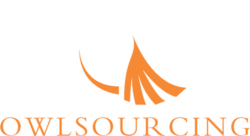
6 thoughts on “How to Import Shoes From China: Fashion Footwear Guide”
I’m in the early stages of considering importing shoes from China, and I’d love to gather some insights to make informed decisions. Could you share any recommendations for reliable shoe manufacturers or suppliers in China?
Hi Imani. It’s great that you’re considering importing shoes from China!
For reliable manufacturers, start by exploring well-known B2B platforms like Alibaba or Global Sources, where you can find a range of suppliers with customer reviews and quality certifications. It’s important to verify suppliers’ credentials and consider visiting trade shows like the Canton Fair for direct interactions. Also, look for suppliers who are compliant with international standards and are transparent about their manufacturing processes. This can help ensure product quality and ethical practices. Good luck with your venture!
I’m new to importing, and your article helped a lot! Do you have a checklist or step-by-step guide for someone like me, just starting out with importing shoes from China? Thanks!
Thank you for your comment! I’m thrilled to hear the article was helpful.
As a start, a basic checklist for importing shoes from China might include: researching reputable suppliers, understanding import regulations, arranging quality control measures, setting up logistics and shipping, and planning for customs clearance.
I can certainly put together a more detailed step-by-step guide if that would be useful. Let me know if you’d like that!
I found the information on importing shoes from China really helpful. It’s good to know the steps involved, especially for someone like me who’s just starting in the business. Thanks for breaking it down in simple terms!
Thank you for your feedback, Mirage! I’m thrilled to hear that the guide on importing shoes from China was helpful to you. If you have any further questions or need more detailed insights as you start your business, feel free to ask. Best of luck with your new venture!